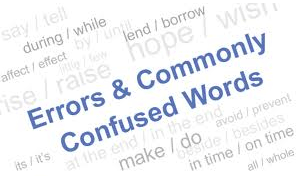Do you know what are words with similar pronunciation but with different meaning/spelling known as?
What are Homo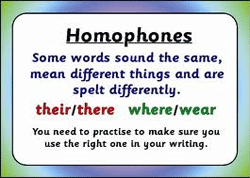 phones?
phones?
Homophones are words that sound the same but have different meanings and different spellings.
The term homo has been derived from a Greek word which means same and phone which means voice.
Example:
Week Weak
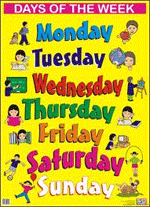

There are seven days in a week. The man is very weak.
In the above mentioned examples both week/weak are pronounced the same, but week in the first sentence means a period of seven days whereas weak in the second sentence means not strong.
Uses of Homophones
Homophones are often used to create paronomasia in word plays and games. In order to deceive the players, paronomasias are created. Paronomasia is also very commonly used in poetries. Better known as puns, it is used to create humor in jokes and comedy shows. In a word play, puns are used to suggest multiple meanings of words that sound the same. When word pairs that sound alike (but not identical) are used, it becomes a homophonic pun.
Example:
The phrase used by George Carlin can be cited as an example.
Atheism is a non prophet institution. Here prophet has been used instead of its homophone profit.
Examples of Homophones
Example:
Some examples of commonly used homophones are as follows:
Sea See


The sea is blue in colour. We see with our eyes.
Example:
Wait Weight


Please wait for me! What is your weight?
Example:
Aloud Allowed
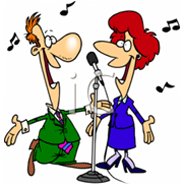
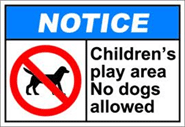
They are singing aloud. Dogs are not allowed in children’s play area.
Example:
Flour Flower


What is the price of 1kg of flour? The flower is red in colour.
Example:
Meat Meet

Karan likes to eat meat. Nice to meet you!
Homophones and Contractions
Homophones are words that sound the same but have different spellings and meanings. Shortened versions of words or groups of words are known as contractions. The missing letter in a contracted word is usually marked by a apostrophe. Some common contractions and homophones are mentioned below:
|
Contractions |
Homophones |
|
You’re |
Your |
|
There’s |
Theirs |
|
Here’s |
Hears |
|
Who’s |
Whose |
Difference Between Homophones and Homonyms
Homophones are words that are pronounced similarly but they differ in spelling and meaning. Homonyms are words that sound and spelt the same but differ in meaning. Homonyms can again be divided into three categories. They are homophone (same pronunciation but different spelling/meaning), homograph (same pronunciation and same spelling), Heteronym (same spelling but different pronunciation)
Example:
Homophone: Steel (various forms of metals), steal (to take someone’s property without permission)
Homonym: rock (a large mass of stone), rock (a kind of music)
Difference between Homophones and Homograph
Homophones are words that sound alike but have different meaning and spelling whereas words that are spelt/pronounced the same but have different meaning are called homographs.
Example:
Homophone: pear (a kind of fruit), pair (two identical things)
Homograph: fair (reasonable), fair (complexion)
Want to know more about “Homophones?” Click here to schedule live online session with e Tutor!
About eAge Tutoring:
eAgeTutor.com is the premier online tutoring provider. eAge’s world class faculty and ace communication experts from around the globe help you to improve in an all round manner. Assignments and tasks based on a well researched content developed by subject matter and industry experts can certainly fetch the most desired results for improving spoken English skills. Overcoming limitations is just a click of mouse away in this age of effective and advance communication technology. For further information on online English speaking course or to experience the wonders of virtual classroom fix a demonstration session with our tutor. Please visit www.eagetutor.com.
Contact us today to know more about our spoken English program and experience the exciting world of e-learning.
Reference Links:
- http://en.wikipedia.org/wiki/Homophone
- http://www.englishclub.com/pronunciation/homophones.htm
- http://www.icteachers.co.uk/children/sats/homophones.htm
- http://www.magickeys.com/books/riddles/words.html
- http://www.dailywritingtips.com/homonyms-homophones-homographs-and-heteronyms/
What are words that confuse you known as?
What are confusing words:
There are many words in English that can easily confuse you. The words that confuse a writer are called confusing words.
 Example:
Example:
- I accepted her invitation for the party.
- Everyone was invited except Mr. Ram and his family.
Look at the below mentioned words. Accept
and except.
 Accept means to take or receive (something offered). It means to acknowledge something.
Accept means to take or receive (something offered). It means to acknowledge something.
Except means to exclude or to leave out.
These two words are often considered as confusing words. They are often mixed up and used incorrectly.
Their uses should be very easily remembered. If you find any acknowledgement involved, then it should be accept not except.
List of Confusing Words:
Below mentioned are few commonly used confusing words and their meanings:
|
WORD 1 |
MEANING |
WORD 2 |
MEANING |
|
Aloud |
With loud voice |
allowed |
To give permission to |
|
Affect |
To influence |
effect |
To bring about, accomplish |
|
Brake |
To stop a vehicle |
Break |
To separate into parts or fragments |
|
Breach |
A violation of law, promise, trust |
Breech |
The lower part of anything |
|
Coarse |
Rough |
Course |
A direction or route taken or to be taken |
|
Council |
An assembly of persons convened for consultation or advice |
Counsel |
advice |
|
Desert |
An arid area with very little rainfall |
Dessert |
The final course of a meal i.e. cake, pie, icecream |
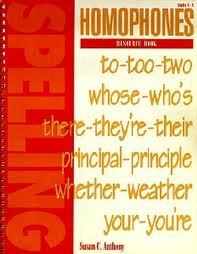
Some Confusing Words and Homophones
Confusing words are those words that confuse a reader and make it difficult for him to use the word correctly. Homophones are words that sound alike but have different spelling and meaning. People often find homophones very confusing.
Example of Homophone:
Principal means head of a school
Mr. Goswami is the prinicipal of our school.
Principle: Fundamental or primary law of truth.
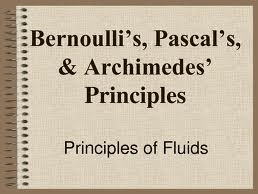
John is a man of principles.
These two words (principal and principle) are words that sound the same but have different meaning and spelling. They are homophones. So it is easy to get confused. The first word principal that ends in “pal” has many meanings. It can mean a head of a school, an important person in business and the second word that ends in “ple” has only one meaning i.e. a fundamental rule or belief.
More Examples of Confusing Words
Below mentioned are some examples of commonly used confusing words.
Example 1:
Sight and site are words that get mixed up and people cannot differentiate them.
|
Word 1 |
Meaning |
Word 2 |
Meaning |
|
Sight |
Ability to see |
Site |
location |
Sentence 1: Let’s go for sightseeing.

Sentence 2: We’ll go to the site tomorrow.

Example 2:
|
Word 1 |
Meaning |
Word 2 |
Meaning |
|
Stationary |
Not moving |
Stationery |
Writing materials |
Sentence 1:
The car remained stationary in the heavy traffic.

Sentence 2:
Save 20% on all office stationery!

Example 3:
|
Word 1 |
Meaning |
Word 2 |
Meaning |
|
Cereal |
A breakfast food made of grains |
Serial |
A happening in a series. |
Sentence 1:
I eat cereal in breakfast.
Sentence 2
I love to watch serials.

Want to know more about “Confusing words?” Click here to schedule live online session with e Tutor!
About eAge Tutoring:
eAgeTutor.com is the premier online tutoring provider. eAge’s world class faculty and ace communication experts from around the globe help you to improve in an all round manner. Assignments and tasks based on a well researched content developed by subject matter and industry experts can certainly fetch the most desired results for improving spoken English skills. Overcoming limitations is just a click of mouse away in this age of effective and advance communication technology. For further information on online English speaking course or to experience the wonders of virtual classroom fix a demonstration session with our tutor. Please visit www.eagetutor.com.Contact us today to know more about our spoken English program and experience the exciting world of e-learning.

